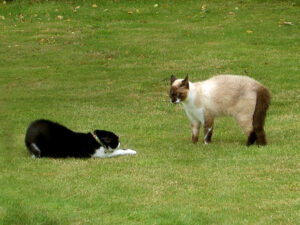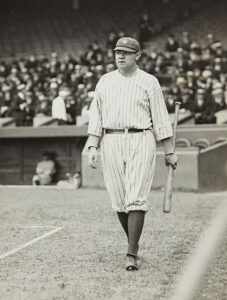It was supposed to be a short story for an anthology honoring the US Marshal’s Service. Our own Reavis Wortham is the editor. He knows that my great grandfather, US Deputy Marshal Isaac Lincoln Gilstrap has a star on the monument in Ft. Smith, Arkansas, to fallen federal marshals, so he did me the great honor of inviting me participating in this anthology that includes many great writers.
The guardrails on this thing were pretty easy. Short story. US marshal. I even had a preordained main character–Ike Lincoln! I can slam this thing out in no time. What, maybe 2,500 words? Three thousand, max?
Okay, JSB, perk up. I’m going to throw you a talking point here for outlining! (Because I don’t outline.)
Here’s the premise: In 1906, Marshal Ike Lincoln has to escort a witness from Salina, Oklahoma Indian Territory (the area where my kin was shot and is now interred), to the territorial courthouse in Muscogee. There, he will testify in the murder trial of Zebadiah Wycliffe (the family name of the gang of renegade Cherokees who killed the real deal.)
Now, a premise is not a plot. I discover the plot by starting the story and seeing where it goes. Here’s the first image that came to mind:
Deputy United States Marshal Ike Lincoln smelled the blood before he saw the body. He drew his Winchester Model 92 rifle from its scabbard near his right knee and laid it across his lap. Chambered in .45-40, the lever action repeater could drop any threat. He carried it with the chamber loaded and the hammer on half-cock. Out here in Indian Territory, most gunfights were settled with the first shot.
That felt like a solid start. No idea who the body belonged to or who shot him, but I figured it had to be a bad guy shot by good guys. Why? Well, because someone wanted to kill the witness.
Ah-hah! I had it! Zeb Wycliffe had family, and they didn’t want to see him hanged because of the testimony of our witness. So, they attacked this place and the attack was repulsed.
I said to myself, “Wait! Ike is the hero of the story. He can’t show up after the climactic gunfight.” Lightbulb moment: I’d started the story in the wrong place.
“Screw the lightbulb! I really like that opening!” I deeply wanted to make it work. So, I didn’t change anything. I forged ahead. That repulsed gunfight turns out to be just the first. Not all of the attackers die. And they didn’t run away. They retreated and regrouped.
Regrouped to do what? I didn’t know yet. Some sort of trap, obviously, but other than that, I didn’t know–though I did know that the story would crash and burn unless Ike and company didn’t somehow deal with that upcoming trap on their 30+ mile trek to Muscogee.
By now, I was a solid 1,000 words into a story that didn’t yet know what it was. That’s okay. I’m a professional. I’ve done this before. I did deeply wish that it didn’t read like a cliched high school writing exercise. You know, sometimes an original idea is good for a story.
I found story salvation in my literary comfort spot, which is placing a kid in jeopardy. So, now our witness had name. Tommy Farmer. Now, what about his age? Well, he had to be vulnerable, right? But he also had to be able to ride and shoot, given the story elements that likely lay ahead for him.
Yeah, okay. Okay, we’re on the move now. The 2,000-word mark is far in the review mirror, but that’s okay. Three thousand, 3,500 . . . those aren’t horrific numbers for a short story.
Our little posse is now Bonanza-ing along and I’m thinking. No, this isn’t quite right yet. What to do?
Got it! We’ll make Tommy totally friggin’ crazy with a homicidal streak.
DING! DING! DING!
All right. We’re on a roll now. Is 5,000 words too long for a short story? But it’s really, really good. And now I’m into the final action scene. we’ll get this puppy wrapped up in no time.
At 6,200 words, I’m thinking I might have an issue. Like, a really big problem.
Ooooooh. That would be a really good twist. Yeah, let’s see where that goes.
Twists lead to turns, don’t you know. Fictional actions have fictional consequences.
Dear idea factory: Please stop, already!
Then, finally, it happened. I found the ending. Final count at the end of the first draft: 8,569 words. (Note for the record: this is the first time Reavis is hearing this.)
Clearly, I have editing to do. Perhaps some restructuring, but not a lot of the latter. Fact is, I don’t have an assigned final word count, so that could be either good or bad.
If there’s a takeaway for you, TKZ family, from this post it’s my recommendation that you always let a story drive itself. Especially during that first draft stage, just let it rip. Don’t squander any drama and chase the plot down every rabbit hole. Some will work out, others won’t, but that’s okay.
You can always fix it in post.
What say you? Have you lost control of any stories lately?


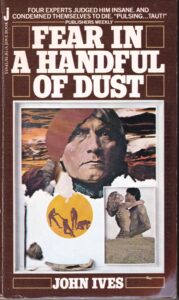




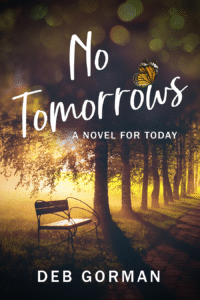











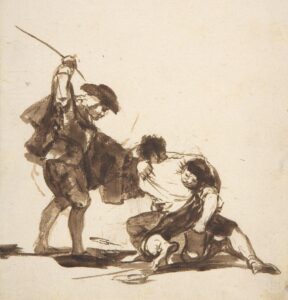 Most people are familiar with “fight or flight” response to a threat. Physiologist and Harvard Medical School chair,
Most people are familiar with “fight or flight” response to a threat. Physiologist and Harvard Medical School chair, 

